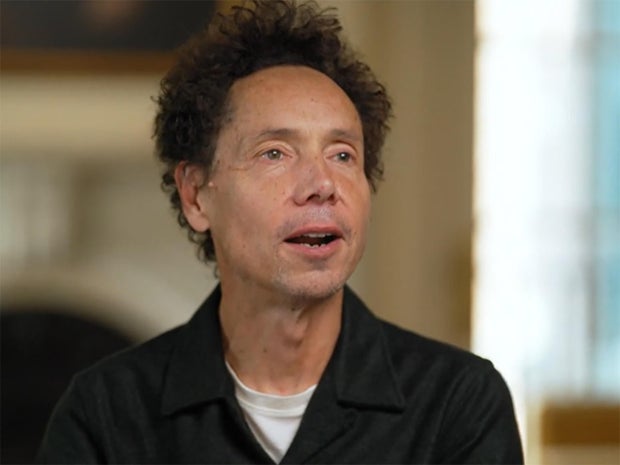CBS News
NPR suspends Uri Berliner, editor who accused the network of liberal bias

National Public Radio has suspended Uri Berliner, a senior editor who earlier this month claimed in an essay that the network had “lost America’s trust” by pushing progressive views in its coverage while suppressing dissenting opinions.
Berliner’s suspension was reported by NPR media correspondent David Folkenflik, who said that the senior editor was suspended for five days without pay starting on Friday. A formal rebuke from NPR said Berliner had violated its policy of securing prior approval to write for other news outlets, and warned that he would be fired if he breached those guidelines in future, Folkenflik reported.
NPR declined to comment to CBS News. “NPR does not comment on individual personnel matters, including discipline,” a spokesperson said.
Berliner’s essay in the Free Press caused a firestorm of debate, with some conservatives, including former President Donald Trump, calling on the government to “defund” the organization. Some of Berliner’s NPR colleagues also took issue with the essay, with “Morning Edition” host Steve Inskeep writing on his Substack that the article was “filled with errors and omissions.”
“The errors do make NPR look bad, because it’s embarrassing that an NPR journalist would make so many,” Inskeep wrote.
In the essay, Berliner wrote that NPR has always had a liberal bent, but that for most of his 25 year tenure it had retained an open-minded, curious culture. “In recent years, however, that has changed,” he wrote. “Today, those who listen to NPR or read its coverage online find something different: the distilled worldview of a very small segment of the U.S. population.”
Berliner added, “[W]hat’s notable is the extent to which people at every level of NPR have comfortably coalesced around the progressive worldview. The “absence of viewpoint diversity” is “is the most damaging development at NPR,” he wrote.
After the essay’s publication, NPR’s top editor, Edith Chapin, said she strongly disagrees with Berliner’s conclusions and is proud to stand behind NPR’s work.
COVID coverage, DEI initiatives
Berliner criticized coverage of major events at NPR, singling out its reporting on COVID and Hunter Biden as problematic. With the first topic, he wrote that the network didn’t cover a theory that COVID-19 had been created in a Chinese lab, a theory he claimed NPR staffers “dismissed as racist or a right-wing conspiracy.”
He also took NPR for task for what he said was failing to report developments related to Hunter Biden’s laptop. “With the election only weeks away, NPR turned a blind eye,” Berliner wrote.
Berliner also criticized NPR for its internal management, citing what he claims is a growing focus on diversity, equity and inclusion initiatives, or DEI.
“Race and identity became paramount in nearly every aspect of the workplace,” Berliner wrote. “A growing DEI staff offered regular meetings imploring us to ‘start talking about race’.”
Inskeep said Berliner’s essay left out the context that many other news organizations didn’t report on Hunter Biden’s laptop over questions about its authenticity. He also disputed Berliner’s characterization that NPR editors and reporters don’t debate story ideas.
“The story is written in a way that is probably satisfying to the people who already believe it, and unpersuasive to anyone else — a mirror image of his critique of NPR,” Inskeep wrote.
—With reporting by the Associated Press.
CBS News
Malcolm Gladwell on “Revenge of the Tipping Point”

Watch CBS News
Be the first to know
Get browser notifications for breaking news, live events, and exclusive reporting.
CBS News
Malcolm Gladwell’s life has changed; he has not

On Tuesday, a new Malcolm Gladwell book comes out. And if history is any guide, it will be a bestseller. “They’re stories about ideas,” he said. “They have characters. They have plots. I’m usually trying to say something about the world.”
His first book, “The Tipping Point,” published in 2000, established the Gladwell recipe: he explores a theme through anecdotes and little-known scientific studies. “‘Tipping Point’ was about the epidemic as an incredibly useful way of understanding how ideas move through society,” Gladwell said. “And epidemics have rules. Let’s learn the rules, right?”
His seven New York Times bestsellers have sold 23 million copies in North America alone. His fee for corporate speeches is $350,000. His fans have downloaded a quarter-billion episodes of his podcast, “Revisionist History,” and he founded a company called Pushkin Industries to produce it.
CBS News
In other words, Gladwell has come a long way from the small Canadian town where he grew up, son of a British father and a Jamaican mother, whom he describes as “subversive,” someone who would write notes to excuse her son from class with a blank space. “I would just fill out the date,” said the man who skipped a lot of school.
He attended the University of Toronto, but his best education was the ten years he worked for the Washington Post. “I knew nothing about newspapers,” he said. “I was so raw. I was 23, I think, or 24. Bob Woodward was two rows away from me. I learned at the feet of the greatest journalists of my generation.”
In 1996, Gladwell joined The New Yorker. He wrote about why, in the 1990s, New York’s crime rate plummeted in an article called, “The Tipping Point.” A book followed. It introduced a recurring Gladwellian theme: hidden patterns in the way the world works.
He’s a world-class contrarian, about college (“You should never go to the best institution you get into, never; go to your second or your third choice. Go to the place where you’re guaranteed to be in the top part of your class”); about working from home (“It’s not in your best interest to work at home. … If you’re just sitting in your pajamas in your bedroom, is that the work life you want to live, right? Don’t you want to feel part of something?”); about football (“I think the sport is a moral abomination”).
Gladwell says he enjoys being provocative: “Of course!” he said. “I like poking the bear. I mean, journalists should poke the bear.”
CBS News
Gladwell’s fans love his storytelling, and the A-ha! moments they bring. His critics, on the other hand, have described his writing as “generalizations that are banal, obtuse, or flat wrong,” and “simple, vacuous truths [dressed] up with flowery language.” “I’m with the idea that not everyone’s gonna like my work,” Gladwell said. “100% of people don’t like anything.”
In a 2021 “Sunday Morning” interview, Gladwell said, “I would rather be interesting than correct.” He called that “an overly provocative way of saying things! No, I think what I meant was, if I turn out not to be right, I’m not devastated. I accept that as the price of doing business.”
Gladwell often turns his mistakes into new chapters or podcast episodes. In “The Tipping Point,” he explained that New York’s crime drop was the result of “broken windows policing.” As he described it, “Little crimes were tipping points for big crimes.” But that philosophy led to New York’s policy of “stop and frisk.”
“Doing 700,000 police stops a year of young Black and Hispanic men is deeply problematic,” Gladwell said. “We were wrong. I was part of that. I’m sorry.”
Which brings us to the new book, “Revenge of the Tipping Point.” “The original ‘Tipping Point’ is a very optimistic, rosy book about the possibilities for using the laws of epidemics to promote positive social change,” he said. “In the last 25 years, I spent a lot of time thinking about the other side of that problem, which is, what happens when people use the laws of epidemics in ways that are malicious or damaging or self-interested?”
Little, Brown & Co.
The book’s stories range from topics as obscure as cheetah reproduction, to stories as big as the Holocaust. He writes that almost nobody talked about the Holocaust, or even called it that, until NBC aired a miniseries called “Holocaust” in 1978. “And what changed happened like [snaps fingers]. I mean, it was just there was a tipping point in our understanding of the Holocaust,” he said.
This book arrives at a tipping point in Gladwell’s own life. In a span of five years, he got engaged, had two children, turned 61, and moved from Manhattan to pastoral Hudson, New York. “It’s a lot to handle. There isn’t a single person who ever lived whose parents did not say, ‘This is a lot!'” he laughed. “I have become the person that, you know, I once despised, and nothing makes me happier.”
He also despises Ivy League colleges, accusing them of prioritizing their own reputations over focusing on their students.
Has parenthood affected his outlook on any of the things that he’s written about before? “Well, it’s prepared me for the possibility that I will be a massive hypocrite!” Gladwell laughed. “So, you know, it’s one thing to write about what you should do with your kids when you don’t have them.”
For all his success, Malcolm Gladwell maintains that nothing has changed in his approach, his work ethic, or his contrarianism. “It hasn’t changed what I do,” he said. “I don’t farm out my research; I still go on reporting trips. It hasn’t gotten old. In fact, my great regret is I don’t have time to do more.”
READ AN EXCERPT: “Revenge of the Tipping Point” by Malcolm Gladwell
For more info:
Story produced by Wonbo Woo. Editor: Remington Korper.
CBS News
Coldplay on their record-breaking world tour

Watch CBS News
Be the first to know
Get browser notifications for breaking news, live events, and exclusive reporting.







